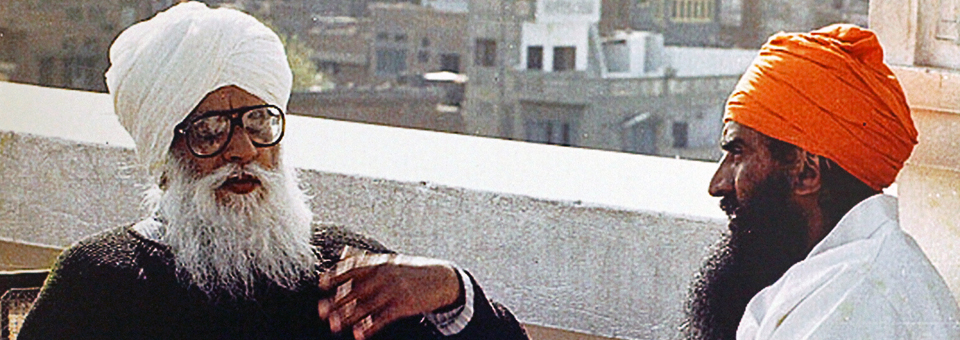Sumera Iram came to the UK in 2012 to start a new life with a family she thought she could trust. Hers were not grand entrepreneurial designs or a daily life free from political struggle, but the hopes of a young woman leaving behind all that she knew in her native Pakistan for a husband that she could grow to love and with whom she could build a family of her own. But just four years later, her husband was sentenced last Friday to two years in prison for having kept his wife in domestic servitude, and as Iram herself has been saying, much more needs to be done to combat such crimes that fall into the taboo World of Honour Based Violence.
The case of Sumera Iram is sadly not unique and her words of warning (reported by The Guardian newspaper) should echo throughout the corridors of Whitehall, Scotland Yard and South Asian communities alike. “He tortured me emotionally, physically, psychologically and he gets just two years.” Iram understandably believes that the sentence was not nearly severe enough not only for the suffering that she was subjected to, but to act as a deterrence to others. Her husband Safraz Ahmed forced her to work up to 19 hours a day, routinely beat her, and abused her both physically and mentally. Police forces did not intervene until she attempted suicide and in this day and age that is not a good enough way to deal with such cases, as The Guardian newspaper article points out. They quote DS Pal Singh of the Metropolitan Police who advocates that “specialist units for the secondary investigations into honour based violence in areas of large Asian demographics” are needed. Singh alongside DC Luke Bacon investigated this case and were instrumental to bringing Ahmed to justice, but the former is no stranger to such crimes and was previously commended for his investigative work on a prominent case – the disappearance and murder of Londoner Surjit Athwal.
That such crimes are committed across religious divides must be acknowledged so that permanent remedies can be sought and implemented. Sumera Iram is under no illusions of this and told The Guardian: “Officers need to be better trained to understand the way different cultures work and the way people in some communities treat their wives. It’s not a religious problem, it’s a cultural problem.” There are many people within the East-Punjabi community who would like to pretend that Honour Based Violence is a ‘Muslim problem’, but it is clear to me that Iram’s words hold truth. Crimes of this sort are committed by people of all religious affiliations, even if some do so more than others, but what is at the root of this problem is a culturally backward perception of women – one which was tackled head on by Guru Nanak hundreds of years ago.
A website established by the aforementioned DS Pal Singh is an enlightening source of information about how honour based violence (amongst other crimes) should be viewed through a Sikh lens. The relevant section of SikhPolice.org eloquently clarifies that “Guru Nanak redefined honour as self-appraisal in the eyes of Divine-Nature… advocating that it was immoral to enslave or force individuals to act against their will, and that individuals should be empowered with ethical teachings helping them to police their own behaviour“. This definition of honour according to the Sikh way of life flew in the face of traditionally-held values in South Asia where honour was judged not by the self, but collectively determined by ‘the other’ (families, clans, peers, whether friendly or rival). That interpretation of honour is intrinsically linked to power and in particular the power held by a patriarch or matriarch over generations of a family. Many Indian-Sikh households unaware of the truly revolutionary nature of Guru Nanak’s ‘niyara Panth’ continue to cling on to this type of honour and as a result some Sikhs have been guilty of committing Honour Based Violence when such crimes go against the grain of what it means to be Sikh.
That these topics are not being openly discussed in Sikh circles is disgraceful, but not surprising. As with so many other important issues, the complexity and sheer change of mind-set that would be demanded from such conversations is greatly feared, particularly by certain sections of the Sikh Diaspora who, ignorant of Guru Nanak as a social reformer, are concerned with the more pressing matter of “keeping the Panth alive” – as if the House of Guru Nanak requires saving. But some further reading of the Honour Based Violence section from the SikhPolice.org website helps to show how even some of our more everyday activity fosters an environment in which crimes of greater magnitude could follow. “The demise of Sikh political doctrine in the Sikh Empire occurred around the mid-19th Century during the forty year reign of the Sikh monarch, Runjeet Singh (1799-1839). Having been influenced by disingenuous advisors, Runjeet Singh rejected the Gurus’ ideals and reinstated the honour-concerned culture, whereby the status and maintenance of a good reputation of oneself and one’s family (especially women) became paramount. Honour violations were avenged, often with violence, which was sometimes fatal. This became an obligatory and normal response.” Since that time, females in the Sikh Panth have been commonly spoken of as care-givers and nurturers, not as the equal individuals upon whom the Guru bestowed the same benefits and responsibilities that were afforded to males. Physical and biological differences aside, the way we speak about females in this Panth says a lot about the vaccuum of Sikh ideology, not only in the general community, but dangerously amongst preachers, scholars and leaders.
Sumera Iram is one of the luckier individuals to have suffered from Honour Based Violence because in her own words, she is “a victim but I am also a survivor“. I am pleased that Sikhs such as DS Pal Singh are involved in investigating this crime and like the Sikhs of old is fearlessly tackling these social ills head-on. As he said to an Australian broadcast programme: “I’ve always advocated to ignore cultural sensitivity. It’s a ruse. ‘We won’t interfere with that family, it’s their culture.’ Well hang on a minute, crimes are being committed, people’s lives are being destroyed, people’s freedoms are being suppressed“. I would like to think that his efforts are acknowledged within the wider Sikh community and hope that they act as a catalyst for us to engage in more open discussion of taboo topics, and by association embark on a journey to better understand this way of life. Whether we harbour visions of epic achievements in our lives or simply look forward to humble experiences with loved ones, none of us would want it to be destroyed in the way that Sumera Iram or the too-many others like her have suffered.





